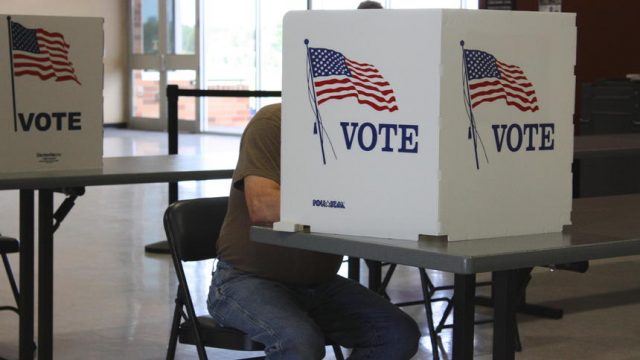North Dakota Lawmakers Should Change Voter ID Law to Make ID’s Easier to Get

Yesterday federal Judge Daniel Hovland struck down North Dakota’s voter ID law.
It wasn’t hard to see this coming. Federal judges in two other districts have struck down similar laws coming out of states like Texas and Wisconsin. North Dakota’s law was actually a bit more strict than the law in those states.
The case was the one brought by a Colorado-based advocacy group on behalf of a group of North Dakota tribal members.
“Voter fraud in North Dakota has been virtually non-existent,” Hovland wrote in his opinion nothing that the state “produced no evidence suggesting the public’s confidence in the electoral process would be undermined by excusing those voters who cannot reasonably obtain an ID.”
[mks_pullquote align=”left” width=”300″ size=”24″ bg_color=”#ffffff” txt_color=”#000000″]If the problem is that Native Americans and other demographics struggle to obtain valid ID cards, our response shouldn’t be to water down the ID requirement. Rather, we should break down the barriers to Native Americans (and whoever else might be having problems) getting ID’s.[/mks_pullquote]
This seems like an absurd standard. For one thing, states like North Dakota haven’t exactly been doing a lot to detect voter fraud. One aspect of the previous law North Dakota lawmakers got rid of – something Hovland said in his opinion that he’d like to see restored – was the option to simply sign an affidavit proclaiming that you are who you say you are and that you’re qualified to vote wherever it is you’re voting. In past election cycles thousands and thousands of these affidavits have been used to qualify voters but nobody went back and verified that they were accurate.
How do we know they were accurate? And even if we proved they weren’t accurate, what good would it do us when we’d likely discover that after the lawmakers and state officials elected have already been seated? Remember that North Dakota’s regular legislative sessions begin just a couple of months after election day.
Put simply, I don’t think we should have to wait around until voter fraud happens on a massive scale before we put in place modest protections to avoid it.
But there is hope for voter ID which I think we can take from other statements Hovland made in his opinion. Statements like this one:
“Although the majority of voters in North Dakota either possess a qualifying voter ID or can easily obtain one, it is clear that a safety net is needed for those voters who simply cannot obtain a qualifying voter ID with reasonable effort.”
And this one:
“The undisputed evidence before the court reveals that Native Americans face substantial and disproportionate burdens in obtaining each form of ID deemed acceptable under the new law.”
If the problem is that Native Americans and other demographics struggle to obtain valid ID cards, our response shouldn’t be to water down the ID requirement. Rather, we should break down the barriers to Native Americans (and whoever else might be having problems) getting ID’s.
Policies like mobile DMV teams visiting reservations and rural communities, and something to address citizens who only have a post office box address, would go a long way toward addressing the complaints brought by the lawsuit while preserving the ID requirements as a protection against voter fraud.
That’s the direction lawmakers should go to fix the ID laws.




